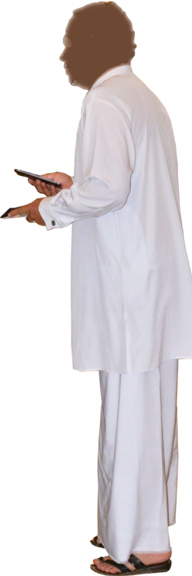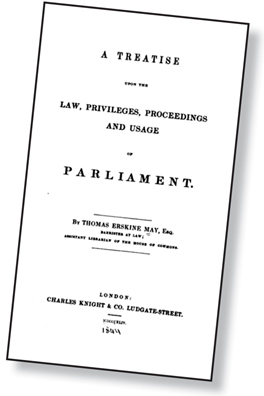 The
initiation The
initiation
Orienting new parliamentarians to best discharge
their duties as legislators:
by Dilrukshi Hadunnetti

In the country’s foremost lawmaking body – the Parliament – the
‘freshers’ or the first-time legislators gathered last week in a
committee room for their ‘orientation’ – both to the House and the
parliamentary practice.
Introduced post the 1977 general election with aspects being added
with the passage of time, all parliamentarians who enter the House for
the first time are given an introduction to the building, on accessing
parliamentary services and the overall functioning as a Member of
Parliament. This includes the conduct, attire and the discharge of
duties as a parliamentarian.
 This
year, following the August 17 parliamentary elections, over a third of
225 elected and nominated legislators – all of them fresh-faced and new
– attended an orientation which, according to parliamentary officials,
is the “first step to prepare legislators for the job of an MP.” This
year, following the August 17 parliamentary elections, over a third of
225 elected and nominated legislators – all of them fresh-faced and new
– attended an orientation which, according to parliamentary officials,
is the “first step to prepare legislators for the job of an MP.”
“It is a program that seeks to ‘orient’ parliamentarians to best
discharge their duties as legislators,” says the current Secretary
General of Parliament, Dhammika Dassanayake, who also considers it part
of the parliamentary process.
The orientation programme is also the initial introduction to the
Standing Orders, or the Code governing the House.
According to officials associated with the orientation, the sessions
are designed to prevent mishaps and to ‘best orient’ parliamentarians to
perform their duties as MPs.
“There are no courses or training institutions for MPs. The public
expectations are extremely high of any legislator and it is the House’s
responsibility to prepare them to effectively function as meaningful
contributors to the legislation-making process. It needs to begin with
basic orientation,” a senior parliamentary official said.
First point of contact
The information counter that is specially opened for the MPs elected
by a parliamentary election is the first point of contact for most, and
the basic information about orientation is offered at that point by
parliament staff.
|
May’s ‘Parliamentary
Bible’
No legislator, old or new, is worth his or
her salt without some knowledge of Thomas Erskine May and
his works, former Speaker and an authority on parliamentary
tradition and practice, Anura Bandaranaike once said,
emphasizing the nexus between the Westminster tradition and
Sri Lankan Parliamentary practice.
Titled ‘Erskine May’s Treatise on the Law,
Privileges, Proceedings and Usage of Parliament’ is a
parliamentary authority originally written by British
constitutional theorist and Clerk of the House of Commons,
Thomas Erskine May.
Considered the most authoritative and
influential work on parliamentary procedure and British
constitutional convention, the 496-paged book has become
part of the uncodified constitution of the United Kingdom
and is often referred to as the “British Parliamentary
Bible,” acting as a rule book for British parliamentarians,
since its first publication in 1844. With many new editions,
the latest being in 2011, May’s work continues to influence
and inspire other countries, particularly in countries which
use the Westminster system.
Chapter VII of Book II deals with Practice
and Proceedings in Parliament. The chapter deals with the
meeting of a new parliament, election of the Speaker,
administration of oath, ceremonial address to the House and
other addresses, placement of MPs and so on.
While there had been no real introduction
to May or his collated body of knowledge during orientations
for first time legislators in Sri Lanka, May is liberally
quoted and his work is often used to navigate situations in
the House. “It is a taste one is expected to develop and
expand on,” remarked a former secretary general of
parliament, Nihal Seneviratne.
Among those who used to repeatedly refer
to May, often when the Standing Orders of Parliament fell
silent or remained unclear, was A.H.M. Azwer, a former
minister of parliamentary affairs, in addition to incumbent
Prime Minister Ranil Wickremesinghe and the late Anura
Bandaranaike. |
“From what clothes to wear, the allocation of seats, how to speak and
what guidelines are there for speakers, making intervention to moving
motions, accessing parliamentary services to taking the oath as a
legislator are all explained during the program,” an administrative
official said.
For those who have been associated with the delivery of orientation
programs for new MPs, it is a delightful experience to recall the
frequently asked questions: “accessing restaurants to services to the
directions to the MPs dining to taking oaths.”
“Some ask about receiving their salaries, where to sit and the basis
on which seats are allocated and when they would be able to speak first
in the House. Generally, very genuine questions are asked.
“Swearing in is also an emotional and ‘family event’ for almost all
legislators. There is general excitement when they ask about passes and
how they would be facilitated. But this year, orientation followed the
convening of the 8th Parliament, so some things were clarified well
before the orientation,”’ an official from the Office of the
Sergeant-at-Arms said.
New MPs are also explained how to cast their vote, what ‘ayes’ means
in the House and specially about the presentation of papers, asking oral
questions and tabling motions.
Parliamentary practice and tradition
“It is about the making of a wholesome legislator – the preparation
for greater things in the premier lawmaking body. During my time,
MPs-elect took the orientation seriously and they often ended up in the
libraries, reading up on parliamentary practice and tradition. It is
hoped that the current members also feel encouraged to do so, as the
representatives of the people,” said Nihal Seneviratne, who had a long
stint as a Secretary General of Parliament.
However, parliamentary officials do feel that beyond the
introductions that are simply meant to prepare the first timers to serve
the House, additional knowledge building can be meaningful. “This means,
going beyond the computer literacy and general orientation that is
offered.
Sri Lanka had some of the finest of legislators a couple of decades
ago. They were erudite and simply brilliant. There should be something
that goes beyond the orientation that should help produce legislators of
the kind now lost to this country. There had been so much of breakdown
in discipline among legislators that we can often only speak of a
glorious past. Those will stand out and make us all proud,” a
parliamentary official added.
|

